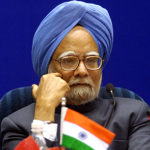 According to Leo Tolstoy, history shapes and determines leaders. In simple terms Tolstoy believed that a combination of several individual decisions, actions and coincidences impact the course of events where one particular man’s actions stand out. Providence allows a single individual to take charge and assume leadership. Contrary to Tolstoy’s theory Thomas Carlyle contended that leaders shape and determine history. In Carlyle’s views some great men endowed with extraordinary characteristics make decisions that determine the course of history. Tolstoy favors an overtly deterministic view of history but Carlyle upholds personal qualities of a few select men.
According to Leo Tolstoy, history shapes and determines leaders. In simple terms Tolstoy believed that a combination of several individual decisions, actions and coincidences impact the course of events where one particular man’s actions stand out. Providence allows a single individual to take charge and assume leadership. Contrary to Tolstoy’s theory Thomas Carlyle contended that leaders shape and determine history. In Carlyle’s views some great men endowed with extraordinary characteristics make decisions that determine the course of history. Tolstoy favors an overtly deterministic view of history but Carlyle upholds personal qualities of a few select men.
While India’s Prime Minister Manmohan Singh is attempting to highlight himself as history’s slave, his countrymen are clamouring for him to dawn Carlyle’s great man mantle. Prime Minister Singh’s interaction with editors of electronic media on February 16, 2011 emphasized this disconnect. It was hoped that the prime minister would come up with a well defined plan of action to tackle corruption in his government and resolutely address concerns over rising inflation. The prime minister however, chose to express his helplessness without making any specific commitments.
Prime minister’s use of the term ‘coalition dharma/politics’ during his interaction reflected Tolstoy’s persuasive fatalism. The P.M. gave an impression that he was being ‘forced’ into making decisions under the compulsions of coalition politics or attitude of opposition parties. He was not able to choose his Cabinet freely due to demands of coalition partners; the CWG probe was incomplete after the 90 days deadline because his government had to follow the due process of law; economic reforms could not be introduced because the BJP was not cooperating. He referred to the nuances of policy formation and implementation under the pressures of national politics and international developments.
During the press conference the prime minister explained how a variety of external factors shaped his decisions and that he was, to quote Tolstoy “a wave pushed ahead by the ship.” Manmohan Singh had earlier exhibited Tolstyan leadership qualities; he successfully guided India’s economic liberalization in the 1990s because he was propelled by the economic milieu and Prime Minister Narasimha Rao’s support. His popularity as the prime minister is plunging because he is unable to fulfil the popular expectations of inspiring honesty and commitment among his Cabinet members. In line with Carlyle’s leadership thesis, Indians expect P.M. Singh to emerge as a leader with solutions who can weed out corruption and inefficiency from the political system. But it needs to be realized that P.M. Singh is good at optimizing opportunities not at creating history. The challenges confronting the Indian polity require certain leadership qualities that P.M. Singh does not possess; history not only creates but also restrains leaders.